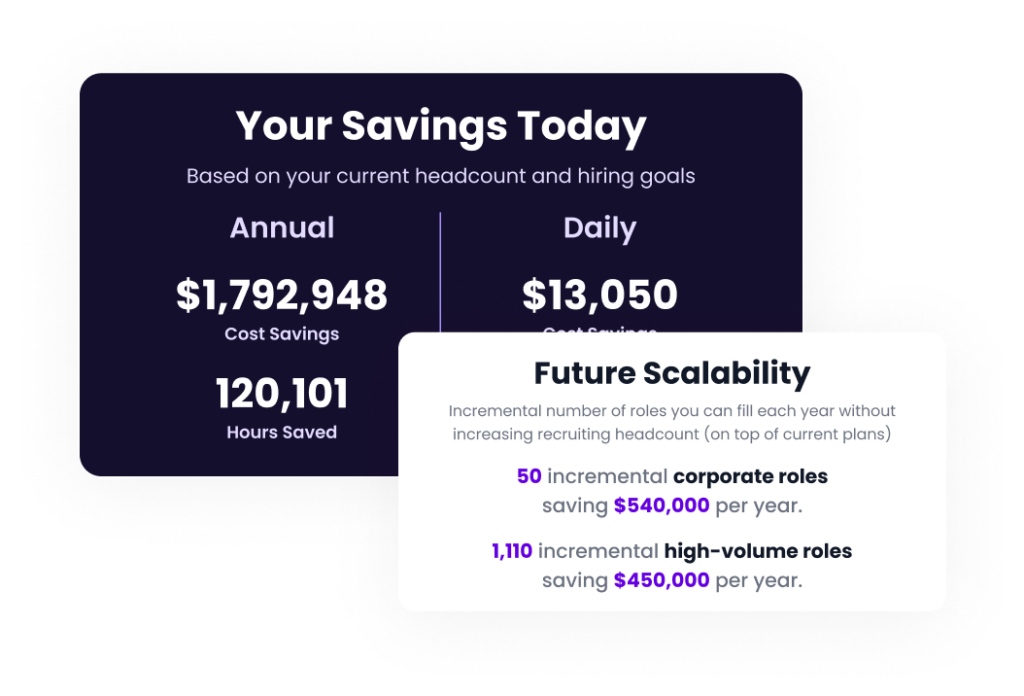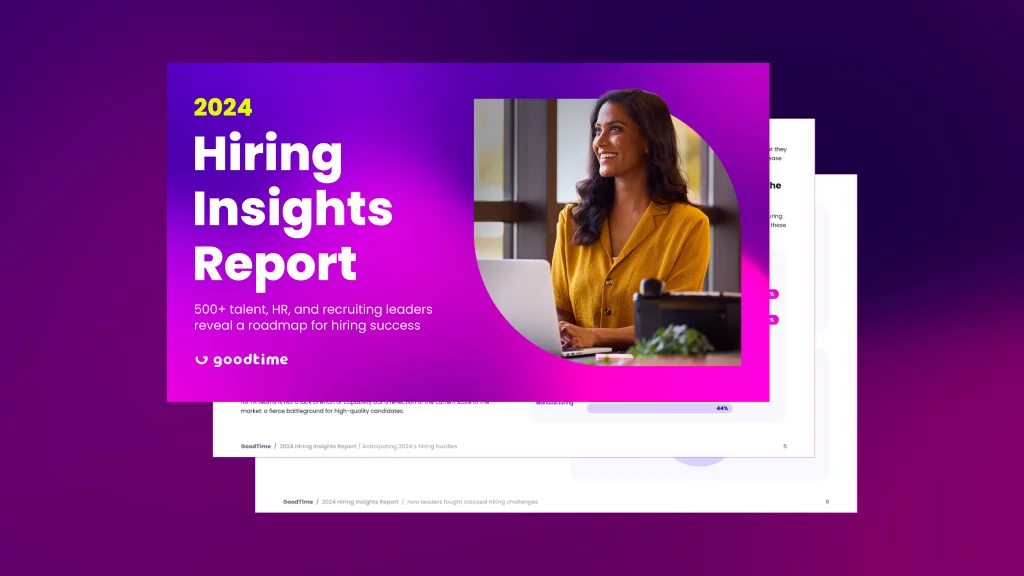Table of Contents
In today’s competitive job market, companies are overhauling their hiring processes to stay ahead of the curve. But in the rush to create a top-notch candidate experience, many recruiters are forgetting to focus on one of the most foundational elements of hiring — legal compliance for interviewer training.
To mitigate the risk of expensive legal trouble, a damaged brand reputation, and unnecessary headaches, hiring practices must be compliant with both state and federal laws. But with the EEOC reporting 68,000 discrimination cases in 2020 alone, it’s evident that there’s a gap between what employers should be doing and what they are doing.
Most of us aren’t experts in the law, and even the most well-meaning hiring leader can inadvertently make a wrong move. So where to begin? The first step is simply being aware of basic hiring laws, and learning best practices for how to comply with them. More often than not, legal issues stem from a lack of training.
Here are four legal issues that untrained interviewers create, and what to do about them.
Issue 1: Untrained Interviewers Can Ask Illegal Questions
Never assume your interviewers understand how to avoid inappropriate questions and statements.
While most interviewers have the best of intentions, it’s easy to let a formal interview turn into a friendly conversation that broaches topics pertaining to a candidate’s personal life and background. And doing so opens the door for illegal questions that can easily turn into a serious issue.
Instead, interview questions should be carefully selected and predetermined for each job. Keep questions role-related, asked in the same manner, and in the same order for each and every candidate. If the question has anything to do with the candidate’s age, race, ethnicity, ability, gender, sexual orientation, relationship status, or religion — leave it out.
Hiring leaders can empower all interviewers to feel confident in the questions they ask by preparing a list beforehand, then training interviewers on how to stick to those questions — and which ones to avoid.
Issue 2: Untrained Interviewers Can Pose Legal Questions in Illegal Ways
In addition to understanding which questions are off-limits, interviewers should also have a grasp on interview “gray” areas.
When specifically related to their ability to perform the job at hand, topics related to a candidate’s height, weight, citizenship, finances, or current employment status can be appropriate. For example, in certain financial or banking sectors, it’s common to ask about potential employees’ personal finances and credit history. But for jobs in most other industries, it’s not.
As a hiring leader, if you’re unsure which topics approach gray areas and which ones don’t, make sure you stay up-to-date on current discrimination laws. Don’t forget to keep your interview team in the know, too.
Does interview scheduling automation make sense for my team?
ROI is key. This is not a time to invest in software that won’t bring you immediate value. So let’s eliminate the guesswork with our free ROI calculator.

Issue 3: Untrained Interviewers Can Collect Biased Interview Data
Today, many companies are taking big steps to minimize the implicit biases that have long been a part of the hiring process, and developing new practices that are more inclusive and equitable. But unfortunately, with 42% of people saying they’ve experienced some type of discrimination during an interview, we still have a long way to go.
In the same way they can ask inappropriate questions, untrained interviewers are also prone to unknowingly using personal biases to navigate their time with a candidate. We’re all hard-wired to seek out commonalities in other people. But unfortunately, left unchecked, relying on those “instincts” too often leads to bad, biased hiring decisions.
To minimize bias, interviewers should first be trained to bring it to their awareness. With a solid understanding of the hidden biases they have, interviewers can then focus on asking meaningful, role-related questions, and collecting useful information about job fit.
Issue 4: Untrained Interviewers Make Hiring More Expensive
Don’t let an interviewer make unnecessary, costly mistakes just because they’re untrained.
When interviewers aren’t prepared, they’re likely to hire the wrong candidate for the job — and those costs add up fast. Poor hires have been proven to cost a business up to $240k in eventual employee replacement costs, and a salary with no ROI.
But when interviews take an illegal turn, it can get even more expensive. Last year, the Equal Employment Opportunity Commission won nearly $440 million for candidates. The average single discrimination lawsuit settles for $40k, which doesn’t even include legal fees.
Fortunately, avoiding interview-related lawsuits is possible when the people facilitating the interviews are up to speed on the right rules and regulations.
It’s Time To Get Serious About Interviewer Training
When determining whether or not a candidate fits an open role, knowing how to interview well is critical. By not proactively understanding the legal implications of poorly-executed interviews, hiring teams are likely to not only lose the best talent but also become liable for discriminatory lawsuits.
The time is now to implement interviewer training. GoodTime’s interview scheduling software helps you train interviews with ease, giving you one hiring experience solution that lets you track interviewers and their progress and train them at scale. GoodTime gives you the confidence that your selected interviewers are evaluating candidates effectively.
Want to learn more? Download The GoodTime Guide to Interviewer Training.




